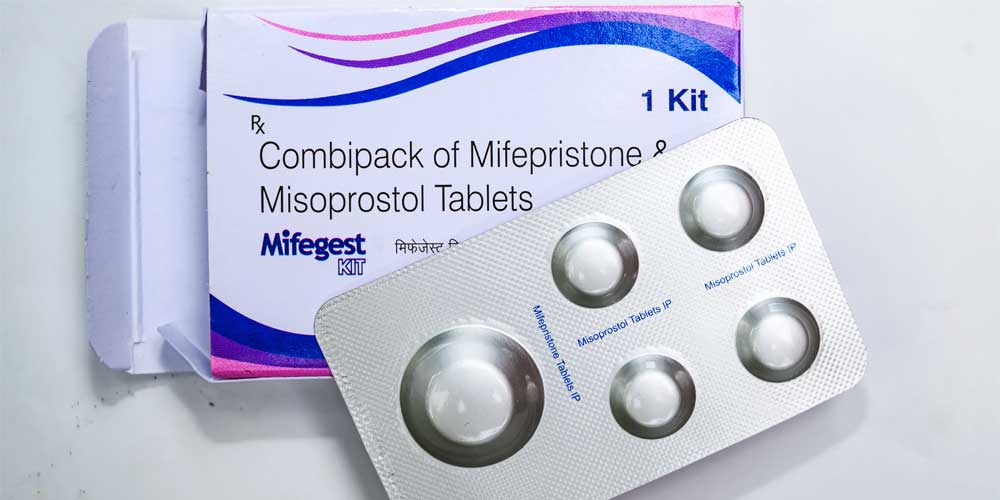New Jersey Attorney General Matthew J. Platkin and the attorneys general of California, Massachusetts, and New York today filed a petition requesting that the U.S. Food and Drug Administration (FDA) eliminate unnecessary restrictions on the abortion medication mifepristone.
Attorney General Platkin and the coalition argue that mifepristone has proven overwhelmingly safe and effective in the 25 years since it was first approved by the FDA, and that the agency’s current Risk Evaluation and Mitigation Strategy (REMS) program imposes burdensome restrictions on access to medication abortion while not meaningfully improving patient safety.
The petition comes as the FDA undertakes a full review of mifepristone labeling requirements at the direction of Secretary of Health and Human Services (HHS) Robert F. Kennedy, Jr. The U.S. Code of Federal Regulations grants individuals and organizations the ability to petition the FDA to issue, change, or cancel a regulation, or to take other action. Attorney General Platkin and the coalition are urging the FDA to use this full review of mifepristone to lift unjustified restrictions and maximize access to this essential medication.
“We will never waver in our support for reproductive freedom, and we will not stand by while the Trump Administration threatens access to essential reproductive health care. Access to mifepristone saves lives and is critical for reproductive choice. That’s why we will continue to fight to ensure that New Jerseyans can continue to access mifepristone,” said Attorney General Platkin. “Federal restrictions on mifepristone are burdensome impediments to reproductive choice and are not based in science or medicine. The FDA has an opportunity to do the right thing and to eliminate barriers to access to this critical medication. I am proud to file this petition and to call on the FDA to make mifepristone more accessible for women across the country.”
Mifepristone, used in combination with misoprostol, is the most common method for ending early pregnancy in the United States and is also the standard of care for managing early miscarriage. Since it was first approved by the FDA in 2000, more than 7.5 million people in the U.S. have used mifepristone. According to leading medical organizations, serious complications are “extremely rare,” and no deaths have ever been definitively attributed to the drug. Mifepristone is also on the World Health Organization’s core list of essential, life-saving medicines.
Despite this safety record, mifepristone remains subject to a REMS program designed for drugs with known, serious risks. In the case of mifepristone, this involves three burdensome requirements:
- Prescriber certification, which deters clinicians from prescribing the medication by requiring that their names be added to national and local abortion provider lists, raising serious safety and legal concerns;
- Patient agreement forms, which all patients– even those being treated for miscarriage – must sign attesting they intend to “end [their] pregnancy”; and
- Pharmacy certification, which imposes complex tracking, shipping, and reporting burdens that dissuade pharmacies from carrying mifepristone.
Attorney General Platkin and the coalition argue these REMS requirements are medically unnecessary and significantly impede access to care, especially in rural and underserved communities. The attorneys general assert that the vast administrative burden associated with REMS requirements has kept mifepristone out of most family medicine practices and primary care settings, despite its low risk and ease of use.
As a result, medication abortion is largely limited to specialized settings, with only one percent of such abortions occurring at primary care facilities. Meanwhile, nearly 90 percent of U.S. counties lack a single abortion provider.
The attorneys general emphasize that these restrictions stand in stark contrast to the FDA’s treatment of far riskier medications. Drugs like opioids, blood thinners, and even other formulations of mifepristone used to treat illnesses like Cushing’s syndrome are not subject to such restrictive REMS programs. FDA-approved drugs for certain cosmetic procedures and erectile dysfunction also face fewer barriers than mifepristone despite carrying risks for serious complications.
Attorney General Platkin and the coalition also cite mounting evidence that the REMS program burdens the entire health care system. Emergency rooms often cannot prescribe mifepristone due to certification hurdles, even though mifepristone is critical for patients experiencing miscarriages. Pharmacies also struggle to meet the administrative burdens stemming from certification requirements, and some have even faced coordinated pressure campaigns and threats simply for attempting to stock the medication. When Walgreens announced plans to seek certification, it faced intimidation attempts and ultimately declined to dispense the drug in 20 states, including several where abortion remains legal.
Under federal law, REMS requirements must mitigate a specific serious risk and cannot be “unduly burdensome” on patients or health care delivery systems. Attorney General Platkin and the coalition argue that the current mifepristone REMS fails to meet that standard. They point to robust state laws already in place in New Jersey and other states that ensure safe prescribing, rigorous informed consent, and professional accountability. The FDA is also specifically directed to account for access in rural areas and to minimize unnecessary burdens on the health care system, criteria that the mifepristone REMS does not meet.
Given mifepristone’s stellar safety record and essential role in abortion and miscarriage care, Attorney General Plakin and the coalition assert that the current REMS program is both scientifically and legally indefensible. The attorneys general are asking FDA to fully eliminate the mifepristone REMS program, including prescriber, pharmacy, and patient certification requirements. In the alternative, at minimum, the attorneys general are asking FDA to exercise enforcement discretion and cease applying REMS elements in New Jersey, California, Massachusetts, and New York, states where abortion is legal and safe, and health care is highly regulated.

